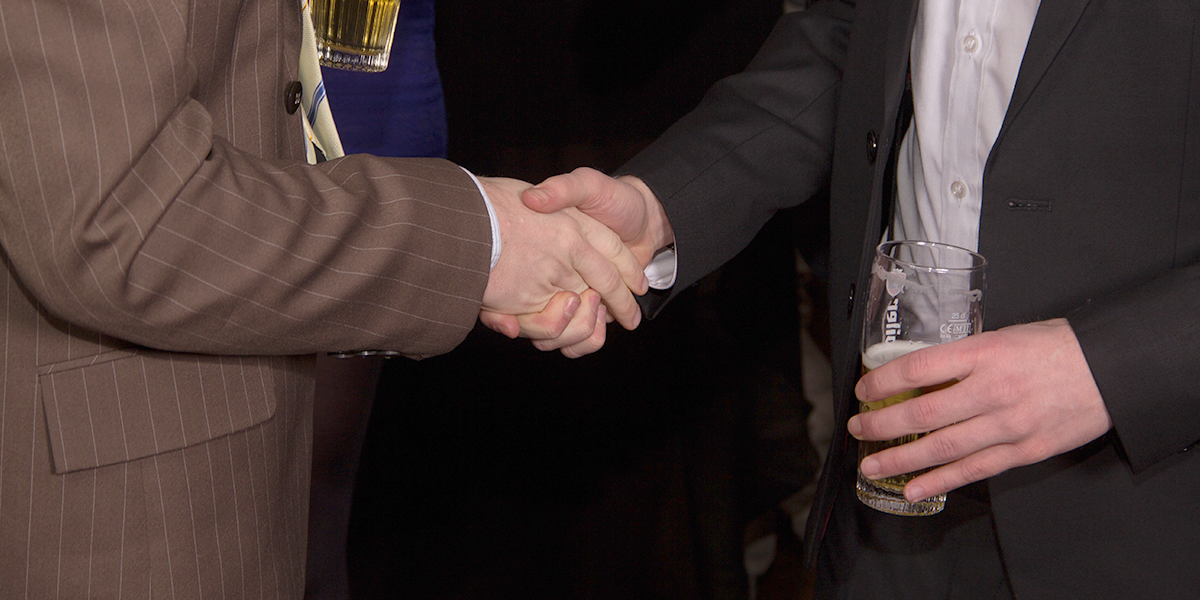When my family immigrated to the United States in 1981, my father weighed 185 pounds. He came chasing the American dream but got more than he expected. Along with a new, more prosperous life for his family, he also acquired some bad habits.
For one, he took up smoking because, as he sheepishly admits, “that’s what business people here did back then.” And to ward off the boredom of long car rides between sales calls, he began eating American-made junk food.
Eventually, he stopped smoking. However, the junk food habit got the best of him. His weight ballooned by over 50 pounds and in his late 50s his doctor told him he was pre-diabetic. If he didn’t change soon, his doctor warned, he’d be at risk for serious health problems.
His doctor prescribed a cocktail of pills to help him control his cholesterol and blood pressure but provided little practical advice regarding what to do about his weight. “Eat better, get more exercise,” the doctor advised after an annual physical. “You can get dressed now,” he said before sending my father on his way.
Today in his late 60s, my father still struggles to control his weight with no success — that is, until recently.
For the past five months, my father has nearly returned to his slender 1981 weight — losing about 2 pounds per week — and finally breaking his bad eating habits. He’s not taking any diet pills nor is he drinking any miracle shakes. He’s not enrolled in any groups like Weight Watchers that can charge hundreds of dollars. In fact, the solution he’s using isn’t costing him a dime.
The Bet
It was New Year’s Eve 2014. My father and I sat in the living room talking about resolutions. I’m generally not a fan of this sort of arbitrary annual goal-setting but my father mentioned, “I wish I could finally get rid of these extra pounds.”
As he said this, his hand went to his belly, squeezing a roll of fat through his shirt as his face grimaced regretfully. I could see he was disappointed in himself.
Trending: Navy SEAL Secrets for High Performance Under Pressure
“How did you quit smoking?” I asked.
“I took a bet,” he said. I was intrigued.
He continued, “A friend said there was no way I could give up smoking for a year. He put $100 on the line and we shook on it. That was it. I never picked it up again.”
This gave me an idea. “What if we did the same for your diet? I know you love sweets,” I said. “I know you also love carbs. But do you agree there’s nothing good about eating sugar and all those processed carbohydrates other than how good they taste?”
“Yes,” he agreed. “I wish I’d never eat them again.”
“Great!” I said. “How would you like to free yourself from the pull of fattening food just like you cut the desire to smoke?”
“OK,” he confirmed, but this time his response was more hesitant, anticipating what I would say next.
“I bet you $25,000 to never eat refined carbohydrates again.” Of course, I didn’t want his money. What I wanted was to get his attention and I needed a dollar amount that would hurt.
His face turned pale as I stuck out my hand to seal the deal.
“Never?” he asked.
“You know sugar and refined carbs are hurting your body, right?” I asked and he agreed. “Well then let’s kill this bad habit for good.”If you successfully give up these things you say you want to stop eating, you win and keep your money. This bet will help you do something you’ve wanted to do for years.”
Trending: How to Make Menopause the Best Time of Your Life
“But no sweets ever again?” he wondered.
“OK, you get to eat whatever you want one day a year — on your birthday.”
He was speechless. Then, my father rose from the easy chair, steadied himself, and shook my hand. The deal was done.
Five months later, my father called me with good news. “My doctor says I can take my pills every other day!” He’s stayed true to the bet and swears that resisting the temptation to eat things he knows he shouldn’t is much easier
Why it Works
Admittedly, my father is just one person. His story provides little more than anecdotal evidence. However, a study published in the New England Journal of Medicine provides some supporting evidence that putting some skin in the game makes people more likely to accomplish their goal of stopping a bad habit.
The study followed three groups of people trying to quit smoking. The control group was offered information and traditional methods for smoking cessation like free nicotine patches. After 6 months, 6% of the people in this group stopped smoking. The next group, called the “reward” group, was offered $800 if they were smoke-free at 6 months. Of those, 17% quit. From just these two groups, we see paying people does indeed provide an incentive to stop a bad habit, at least short term.
However, the third group provided the most interesting results. In this group, called the “deposit” group, participants were asked to put down $150 of their own money, which they would receive back if they successfully quit in 6 months. In addition, they were given a $650 bonus prize from their employer if they quit. Of those who accepted the deposit challenge 52% succeeded.
On the surface, this makes no sense. Why would winning $800 be less effective than winning only $650 plus $150 of your own money back?
Perhaps people in the deposit group were more motivated to quit smoking in the first place? The researchers admitted that over 85% of people who were offered the deposit deal refused to take it. However, the study authors took efforts to scrub the effect of extra motivation by only using data from smokers willing to be in either group.
Trending: Microsoft, Google, and Beyond: What Business at the Cutting-Edge of AI Looks Like
Loss Aversion, Commitment, and a Social Out
So what else might explain the results? For one, the study authors write, “people are typically more motivated to avoid losses than to seek gains.” This irrational tendency, known as “loss aversion,” is a cornerstone of behavioral economics. As Nudge author Cass Sunstein, wrote, “a 5-cent tax on the use of a grocery bag is likely to have a much greater effect than a 5-cent bonus for bringing one’s own bag.”
There are other factors at work as well. Commitment contracts — like putting money down or taking a bet — have proven to be effective at changing behavior because they make us accountable to our future selves. People are notoriously bad at predicting their behavior due to a phenomenon called “time inconsistency.” Essentially, we punt difficult to do behaviors saying, we’ll “eat better tomorrow” or we’ll “clean the garage” next weekend.
Tim Urban, author of the Wait But Why blog, explains his struggle with procrastination writing, “I banked on Future Tim’s real-world existence for my most important plans, but every time I’d finally arrive at a time when I thought I would find Future Tim, he was nowhere to be found — the only person there would be stupid Present Tim. That’s the thing that really sucks about Future You — whenever time finally gets to him, he’s not Future You anymore, he’s Present You, and Present You can’t do the tasks you assigned to Future You … So you do what you always do — you re-delegate them to Future You, hoping that next time time catches up with Future You, he actually exists.”
By creating a binding commitment — like the $25,000 bet my father took with me — we make sure our future selves behave in line with our present goals. A website called stickK.com uses commitment contracts to help its users accomplish their goals. People sign legally binding agreements where they have to pay a third party if they don’t meet their obligations to stop smoking, exercise, or finish their novel, for example. The site, founded by two Yale professors, has proven effective for those brave enough to take the bet.
There’s one more important and often overlooked reason these types of commitments work — they change the language we use. When I asked my father how he manages the temptation to not cheat with just a bite of cake now and then, he told me, “I just don’t. It’s actually not a big deal any more.” Frankly, I was surprised he is having such an easy time with it. Here’s a man who has struggled with his weight for over 30 years but who suddenly finds giving up some of his favorite foods to be, well, a piece of cake. What gives?
It turns out that the way we describe our behaviors can have a dramatic impact on what we will and won’t do. A study in the Journal of Consumer Research found that people who were prompted to use the words “I don’t” versus “I can’t” were nearly twice as likely to resist the temptation of choosing unhealthy foods. The researchers believe using “I don’t” rather than “I can’t” gave people greater “psychological empowerment” by removing the need to make a decision. “I don’t” is outside our control while “I can’t” is self-imposed.
Now when my father goes out to lunch with his friends and dessert is brought to the table, he has a story to tell. “When they offer me a bite, I let them know it would be a very expensive mouthful,” he said. “I explain I just don’t eat that stuff anymore because the bet I made is for life.” He explains, “When I tried to lose weight before, I had to explain to people that I was on a diet. Eventually, I would get tired of saying ‘I can’t’ and I’d cave-in and tell myself, ‘just this once.’ But now with this bet,” my father joked, “I can just blame you!”
The Gist:
- Creating a commitment to stop a bad habit can increase the odds of quitting certain behaviors.
- Though not appropriate for all behaviors (I’ll discuss the limitations in a future essay), the technique works because it uses loss aversion, a commitment contract, and provides a social out for not doing the behavior by changing the language we use to describe our actions.
A version of this post originally appeared on NirandFar.com, Nir Eyal‘s blog about the psychology of products. For more insights on using psychology to change customer behavior, join his free newsletter and receive a free workbook.































